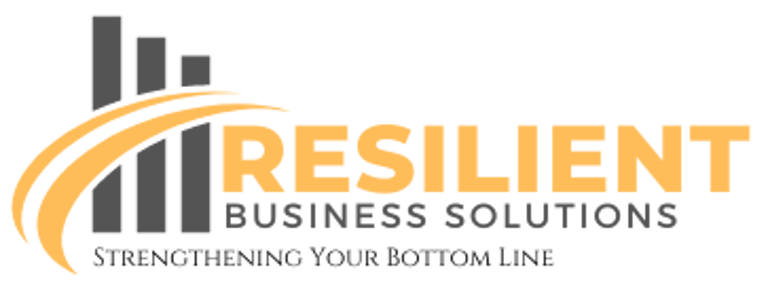5 Tips to Improve Your Accounts Payable Process for Better Supplier Relations
Accounts payable (AP) is vital for financial stability and strong supplier relationships. This post highlights how efficient AP processes improve cash flow, ensure timely payments, and protect a business’s reputation. Learn practical tips for automating workflows, enhancing communication, and tracking key metrics to streamline AP management and support long-term growth.
7 min read


Understanding the Importance of Accounts Payable
Accounts payable (AP) is a fundamental component of any business's financial system, representing the money owed by a company to its suppliers for goods and services received. This crucial process not only ensures that a company maintains its obligations but also plays a significant role in the broader context of business operations. Efficient management of accounts payable directly impacts cash flow, organizational efficiency, and, notably, supplier relationships.
The role of accounts payable cannot be overstated; it encompasses the oversight of outgoing funds and helps maintain a respectful relationship with vendors. Timely payments are essential, as they foster trust and reliability. When AP processes are functioning optimally, it provides suppliers with confidence in a company’s financial stability and operational integrity. Conversely, if a business struggles with delayed or erroneous payments, it risks damaging relationships with suppliers. Suppliers may become frustrated or reluctant to provide goods or services, which can lead to negative consequences for the business, including strained partnerships and disrupted supply chains.
Additionally, poor accounts payable management can affect a company's reputation in the market. Reliability in payments is a critical parameter that suppliers consider when evaluating potential business relationships. For instance, if a company frequently delays payments, suppliers might prioritize their resources for more reliable partners, which could hinder the company's ability to access essential products and services. In turn, this could lead to increased costs, operational inefficiencies, and lost opportunities.
In summary, effective accounts payable processes are integral to maintaining healthy supplier relations. By prioritizing efficient management of AP systems, businesses can enhance supplier satisfaction, strengthen partnerships, and ultimately drive greater success in their operations.
Tip 1: Automate Your Accounts Payable Workflow
In the modern business environment, automating your accounts payable (AP) workflow is crucial for enhancing efficiency and fostering strong relationships with suppliers. The traditional manual processing of invoices often introduces delays, increases the potential for errors, and can lead to strained partnerships. By integrating AP automation tools and software, companies can streamline their invoice processing, resulting in a more reliable payment cycle.
One of the primary advantages of AP automation is the reduction of manual errors. Automation software employs advanced algorithms to capture and verify invoice data, which minimizes the likelihood of input mistakes that can occur when processing invoices by hand. Consequently, this accuracy not only expedites the approval process but also enhances trustworthiness between your business and suppliers. A reliable invoicing process assures suppliers that payments will be processed smoothly, fortifying business relations.
Furthermore, automation results in significantly faster payment cycles. With automated systems in place, invoices can be quickly routed to the appropriate stakeholders for approval, reducing bottlenecks that often slow down manual workflows. This speed encourages timely payments, which is a vital factor in maintaining positive supplier interactions. By ensuring that suppliers receive payments on time, businesses can negotiate better terms and potentially benefit from early payment discounts.
Moreover, effective AP automation tools can provide real-time insights and analytics into spending patterns and payment processes. This data aids in identifying opportunities for cost savings and enhances decision-making capabilities regarding supplier management. Ultimately, adopting an automated accounts payable system not only improves internal processes but also solidifies supplier relationships, making it a strategic investment for your company's future.
Tip 2: Establish Clear Communication Channels
Effective communication is a cornerstone of a successful accounts payable (AP) process and plays a vital role in nurturing positive supplier relations. Establishing clear communication channels between your company and its suppliers is essential to ensure that all parties are aligned and informed throughout the payment cycle. Regular and transparent communication can significantly reduce misunderstandings and foster trust, which in turn can lead to improved supplier loyalty.
One of the best practices in this regard is to schedule regular check-ins with suppliers. These check-ins can occur weekly or monthly, depending on the nature of the business relationship and the volume of transactions. During these meetings, you can discuss payment schedules, address any concerns, and provide updates on the status of invoices. By maintaining proactive communication, you position yourself as a reliable partner who values the supplier’s input and concerns.
Moreover, it is essential to provide timely updates regarding payment processes. Suppliers should be informed about the expected payment timelines and any potential delays. Should any issues arise, addressing them promptly is critical to maintaining supplier trust. For instance, if a payment is delayed due to unforeseen circumstances, communicating this along with a commitment to resolve the issue can help reassure suppliers that their interests are being prioritized.
Additionally, consider utilizing technology tools designed to enhance communication. Many organizations are now employing supplier portals or dedicated communication platforms that allow real-time updates and information sharing. Such tools not only streamline interactions but also provide suppliers with a convenient way to access relevant information, thereby reducing the necessity for frequent inquiries.
In conclusion, by establishing strong communication channels and facilitating open dialogue, businesses can significantly enhance their accounts payable process. This approach will ultimately lead to better supplier relationships, characterized by mutual respect and understanding.
Tip 3: Implement a Standardized Invoice Approval Process
To enhance the accounts payable process and foster better supplier relations, the implementation of a standardized invoice approval process is essential. A consistent workflow not only improves efficiency but also ensures accuracy throughout the approval stages. Establishing a well-defined process entails clear steps that all involved stakeholders must follow. This avoids confusion and potential discrepancies, which can negatively impact supplier payments.
First, it is vital to identify all stakeholders in the invoice approval chain. This usually includes team members from finance, procurement, and operational departments who have the authority to approve expenditures. Once stakeholders are identified, it is useful to map out the approval workflow, outlining each stage of the process from invoice receipt to final payment. Streamlining these stages involves defining roles and responsibilities to mitigate any ambiguities.
Secondly, integrating compliance checks into the process is crucial. Regular audits and compliance verifications help ensure that approved invoices adhere to both company policies and contractual obligations with suppliers. By incorporating compliance into the workflow, organizations can significantly reduce the risk of disputes arising from misunderstood terms or conditions, enabling a smoother relationship with suppliers.
Moreover, utilizing technology such as automated invoice management systems can aid in creating a standardized approval process. These solutions can track invoice submissions, alerts stakeholders about pending approvals, and provide insights into approval timelines. Such digital enhancements emerge as vital tools to ensure invoices are processed promptly, eliminating delays that could strain supplier relationships.
In conclusion, establishing a standardized invoice approval process is a strategic approach to enhancing efficiency and accuracy in the accounts payable process. By ensuring clear communication among stakeholders and maintaining compliance, organizations can significantly improve supplier relationships and contribute to a more productive financial environment.
Tip 4: Monitor Performance Metrics and Supplier Feedback
Monitoring performance metrics and gathering supplier feedback are crucial components in enhancing the accounts payable (AP) process. By tracking Key Performance Indicators (KPIs), organizations can gain insights into how effectively they manage their payables and interactions with suppliers. Some of the pertinent metrics to monitor include invoice processing time, payment accuracy, and the percentage of early payments made. These indicators help assess the efficiency of the AP process and highlight areas where improvements might be necessary.
Another significant KPI is supplier satisfaction, which requires direct engagement with suppliers. Collecting feedback can be done through surveys, regular check-in meetings, or even informal communications. By soliciting their opinions, businesses can understand suppliers’ views on payment timeliness, the clarity of communication, and overall partnership satisfaction. Such feedback is invaluable; it provides a baseline to measure future improvements and can lead to strengthened relationships with suppliers, as they will feel heard and valued.
It is also essential to analyze the collected data periodically. This analysis allows companies to identify patterns and trends over time, helping them understand the broader impacts of their AP practices. For instance, if invoices consistently take longer than expected to process, companies can delve deeper into the reasons behind this delay. Adjustments may include streamlining invoice review processes or investing in automation technologies to enhance efficiency.
Ultimately, the commitment to monitor performance metrics and incorporate supplier feedback can lead to data-driven decisions that positively impact the accounts payable process and supplier relationships. By implementing continuous evaluation practices, businesses set the stage for ongoing improvement and satisfaction on both sides of the transaction.
Tip 5: Foster Long-Term Relationships with Suppliers
Building and maintaining long-term relationships with suppliers is a fundamental aspect of a successful accounts payable process. Treating suppliers as partners, rather than just transactional entities, sets the foundation for a collaborative approach. This paradigm shift recognizes that suppliers can significantly contribute to the growth and sustainability of the business. When suppliers feel valued and respected, they are more likely to prioritize your needs, provide better prices, and offer enhanced services.
Consistency in payments is a crucial component of nurturing these partnerships. Timely payments demonstrate reliability, which instills trust and encourages suppliers to engage in a more supportive relationship. By adhering to agreed-upon payment terms, businesses convey their commitment to mutual success. It is also beneficial to maintain clear communication regarding payment schedules and any potential delays, as transparency fosters goodwill.
Engaging in mutually beneficial negotiations is another vital strategy for fostering long-term supplier relationships. Rather than focusing solely on cost reduction, consider discussions around value-added services, discounts for bulk orders, or improved payment terms. Collaborative negotiations can result in agreements that benefit both parties, reinforcing the notion that the supplier is an essential contributor to your business objectives. Furthermore, making the effort to understand your suppliers’ challenges and capabilities can lead to more sustainable and productive partnerships.
As You Can See
Strong supplier relationships enhance the accounts payable process and positively impact overall business success. By treating suppliers as partners, maintaining timely payments, and engaging in value-driven negotiations, organizations can create a robust network of supportive suppliers. This collaborative environment not only streamlines payment processes but also fosters innovation, improves supply chain resilience, and ultimately contributes to the long-term viability of both the suppliers and the business itself.
When You Are Ready
Ready to simplify your business operations? At Resilient Business Solutions, we’re here to take the stress out of so many of your business tasks, so you can focus on what you do best — growing your business. Whether you need help with bookkeeping, invoicing, managing payables and receivables, content creation, or a new website design, we’ve got you covered. Contact us today to learn how we can support your business with reliable, expert services. Let’s build a resilient future together!
Strengthening Your Bottom Line
Customized financial support to empower your business success.
Get Our Free 50+ Page Small Business Success Guide Now
© 2024. All rights reserved.
